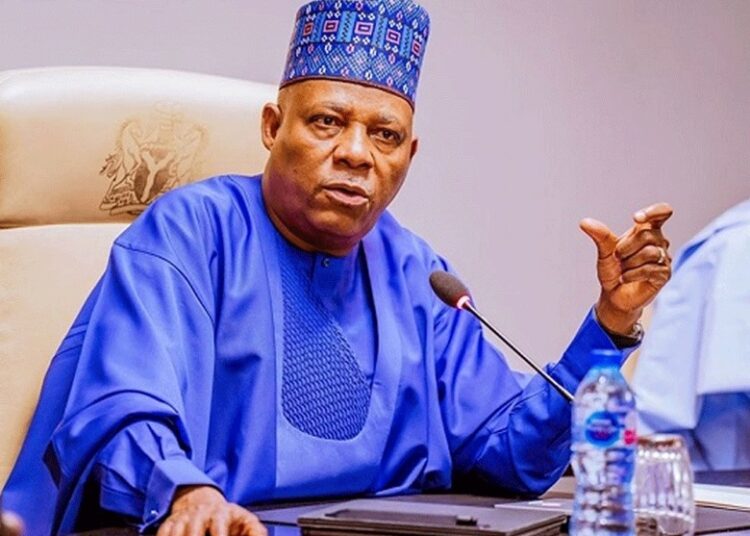The Federal Government has reaffirmed its collaboration with the United Nations Children’s Fund (UNICEF) in a bold initiative to train 20 million young Nigerians in digital skills by the year 2030.
Vice President Kashim Shettima made the announcement on Tuesday during a meeting with top UNICEF officials, including Mohammed Fall, the UN Resident and Humanitarian Coordinator, Rownak Khan, UNICEF’s Deputy Representative in Nigeria, and Celine Lafoucriere, Chief of the UNICEF Lagos Field Office. The meeting was held at the Presidential Villa in Abuja.
As part of this renewed effort, Shettima also accepted an invitation to serve as the Chairman of the Board of Generation Unlimited Nigeria (GenU 9JA), a collaborative platform designed to bridge the gap between education and employment for Nigerian youth aged 10 to 24.
“This is not just about training. It’s about unlocking opportunities,” Shettima said. “With over 230 million people and a median age of just 17, Nigeria must invest in its young population if it wants to remain globally competitive. Digital empowerment is the path forward.”
The GenU 9JA initiative forms part of the broader Renewed Hope Agenda of the Tinubu administration, which emphasizes youth inclusion, technological innovation, and sustainable development as key drivers of economic growth.

Shettima stressed that the country is not seeking handouts but sustainable partnerships built on shared goals. “We are not asking for charity,” he said. “What we need is a respectful, mutually beneficial collaboration. Our youth must be given tools to thrive in the digital economy, and that begins with access, training, and opportunity.”
He added that digital skills not only offer local employment possibilities but also open doors for Nigerian youth to participate in the global job market. “I know young Nigerians working remotely for international firms right from their homes,” he noted.
Speaking at the event, Mohammed Fall commended Nigeria’s leadership and called the GenU platform central to tackling critical issues like youth unemployment and limited digital access.
UNICEF’s Rownak Khan added that Nigeria stands out as a global model for GenU’s implementation. “In terms of scale and impact, Nigeria is leading,” she said. “We’ve already seen over 10 million youth reached through GenU 9JA, and it continues to set a benchmark.”
Celine Lafoucriere noted that since its rollout in 2022, the programme has not only impacted millions but has already created over 1,500 job linkages for young people. She emphasized the importance of aligning partner efforts with national policies to meet the 2030 goal.
“Our objective is clear: reach 20 million youth with the tools they need to succeed,” Lafoucriere said. “To achieve this, stronger collaboration and policy integration will be key.”
The GenU 9JA platform continues to serve as a vital catalyst in reshaping how young Nigerians transition from education to employment—leveraging digital innovation to build a stronger, more inclusive future.



